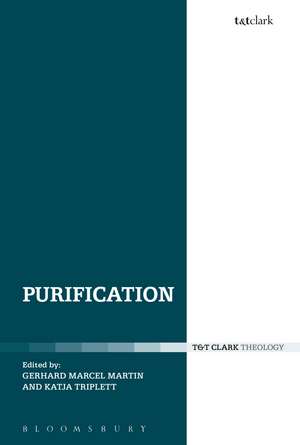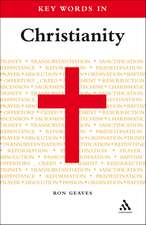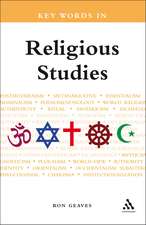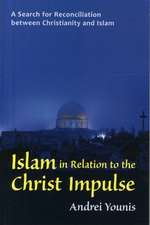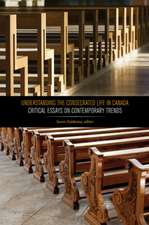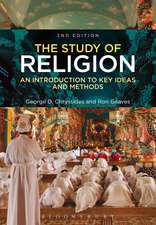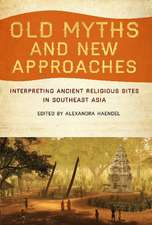Purification
Editat de Gerhard Marcel Martin, Katja Tripletten Limba Engleză Paperback – 28 ian 2015
| Toate formatele și edițiile | Preț | Express |
|---|---|---|
| Paperback (1) | 255.58 lei 6-8 săpt. | |
| Bloomsbury Publishing – 28 ian 2015 | 255.58 lei 6-8 săpt. | |
| Hardback (1) | 772.58 lei 6-8 săpt. | |
| Bloomsbury Publishing – 17 iul 2013 | 772.58 lei 6-8 săpt. |
Preț: 255.58 lei
Preț vechi: 294.38 lei
-13% Nou
Puncte Express: 383
Preț estimativ în valută:
48.91€ • 50.68$ • 40.82£
48.91€ • 50.68$ • 40.82£
Carte tipărită la comandă
Livrare economică 22 martie-05 aprilie
Preluare comenzi: 021 569.72.76
Specificații
ISBN-13: 9780567661487
ISBN-10: 0567661482
Pagini: 192
Dimensiuni: 156 x 234 x 10 mm
Greutate: 0.27 kg
Editura: Bloomsbury Publishing
Colecția T&T Clark
Locul publicării:London, United Kingdom
ISBN-10: 0567661482
Pagini: 192
Dimensiuni: 156 x 234 x 10 mm
Greutate: 0.27 kg
Editura: Bloomsbury Publishing
Colecția T&T Clark
Locul publicării:London, United Kingdom
Caracteristici
Discusses the meaning and structure of purification from the perspective of the history of religions
Notă biografică
Gerhard Marcel Martin is retired Professor for Practical Theology at the University of Marburg, Germany. Katja Triplett is Professor for the Study of East Asian Religions at the University of Göttingen, Germany.
Cuprins
1.Foreword: Masahiko Iburi(President of Tenri University, Japan)2.Preface: Yoshitsugu Sawai(Tenri University, Japan)3.Academic and CulturalExchanges between Tenri University and Marburg University: Retrospect andProspect, Hiroshi Sugai (Tenri University, Japan)4.Purification of the Mindin the History of Religions, Yoshitsugu Sawai (Tenri University, Japan)5.The Religious Circle ofImpurity / Pollution and Purification, Martin Kraatz (Marburg University,Germany)6.Purification andTransformation in Comparative Perspective, Michael Pye (Marburg University,Germany)7.Igatius' SprititualExcersises under the Aspect of Purification, Gerhard Marcel Martin (MarburgUniversity, Germany)8.'Matter out of Place' asa Window into Purification, Saburo Morishita (Tenri University, Japan)9.Negative Theology as'Purification' of Language: Nicolaus Cusanus on Divine Names, Katsumi Shimada (TenriUniversity, Japan)10.Mystical Purification ofthe Mind: Meister Eckhart on Calmness / Gelassenheit,Christoph Elsas (Marburg University, Germany)11.A Genealogy of theDiscourse on Self-cultivation in Modern Japan: New Style for Narrating Buddhismand New Discourse on Religion in Modern Japan, Masahiro Okada (TenriUniversity, Japan)12.Healing Ritualsin Contemporary Japanese Esoteric Buddhism as Acts of Individual and CollectivePurification, Katja Triplett (MarburgUniversity, Germany)13.Purification and Emotion,Jörg Lauster (Marburg University, Germany)14.Purification andSalvation: Rethinking Our Way of Thinking, Motokiyo Fukaya (Tenri University,Japan)15.Fasting. Reflecting onthe History and the Contemporary Renewal of a Christian Exercise, UlrikeWagner-Rau (Marburg University, Germany)16.From 'Purifying' to'Having Been Purified': Tenrikyo Practice of Purification,Shugo Yamanaka (Tenri University, Japan)17.Penance as a Ritual forPurification: Conceptual Transformation of Christian Sacrament in Early ModernJapan, Ikuo Higashibaba (Tenri University, Japan)18.Karma-yoga asSelf-Purification through Service for Others: A Case of Ramakrishna Movement,Midori Horiuchi (Tenri University, Japan)ConclusionsBibliography
Recenzii
The book's greater strength lies in the conceptual landscape which emerges when viewing the essays en masse. Common themes and preoccupations emerge in relief as it becomes clear that - regardless of religious tradition - concepts such as mental purification are prominent and important. This, in turn, allows scholars of religion to appreciate the role that the concept of purification plays in religious expression, and thereby give a comparative religious analysis from a new - and vital - vantage point.
